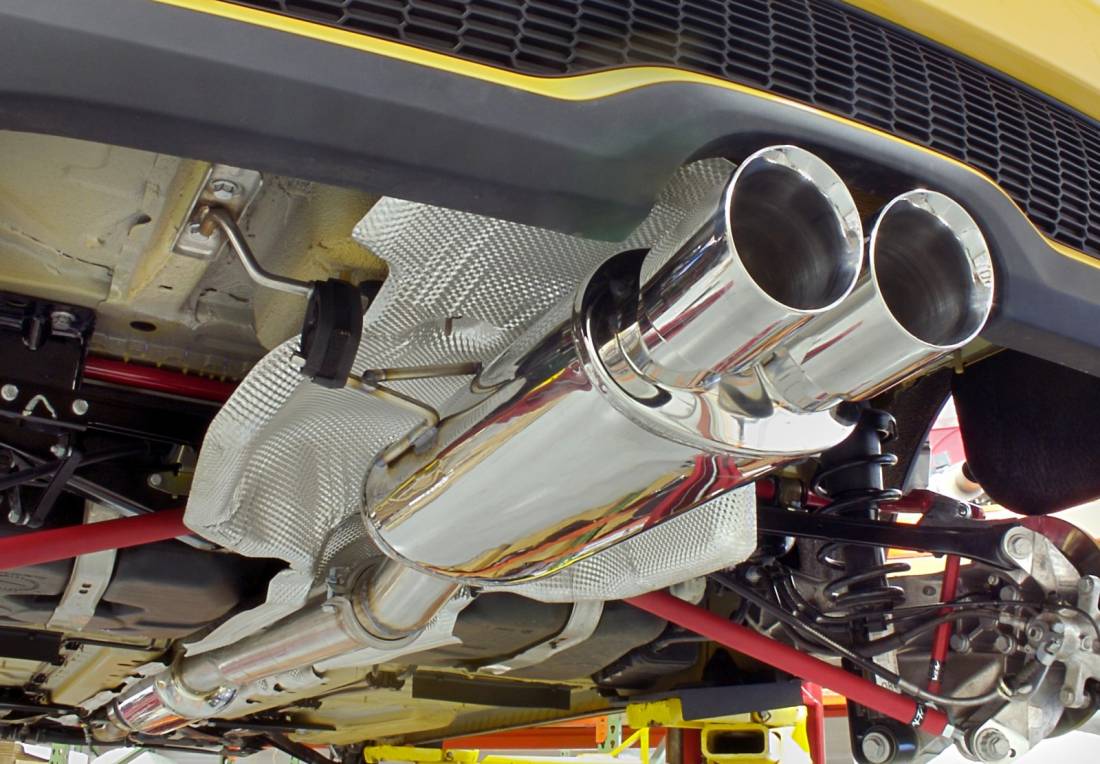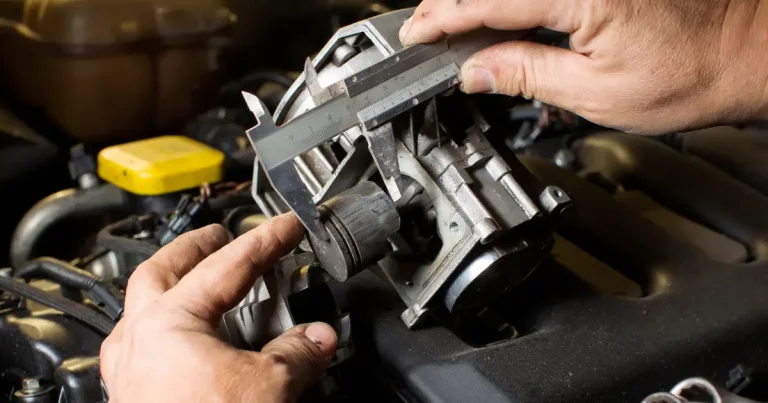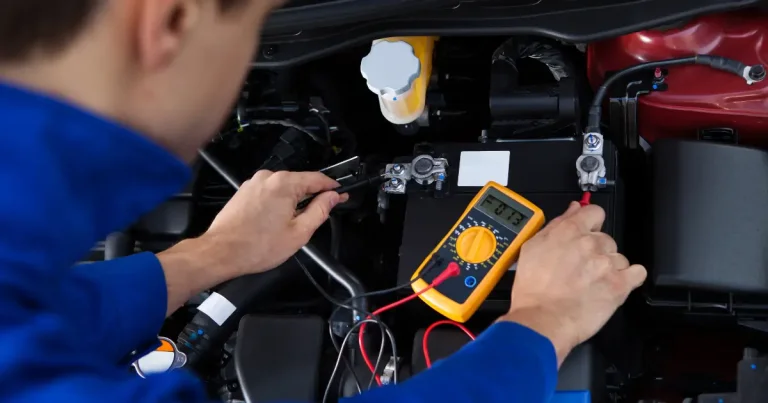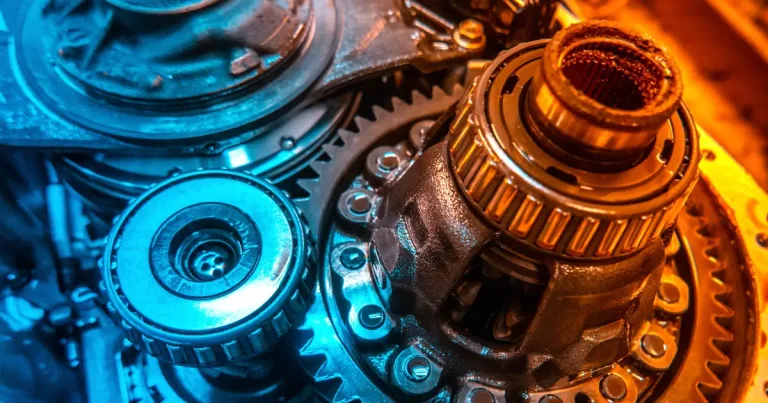Improve engine performance by tuning the engine and maintaining it regularly. Consider using higher-quality fuel and updating exhaust systems.
How Can I Improve My Engine Performance?
Enhancing your vehicle’s engine performance can lead to better fuel efficiency and more power. Regular maintenance is crucial; it ensures all engine components function optimally. Tuning your engine can adjust the air-fuel mix to achieve peak performance. High-quality fuel often contains additives that help keep the engine clean, promoting more efficient operation.
Upgraded exhaust systems can reduce backpressure, allowing the engine to breathe more easily and generate additional horsepower. Remember, ensuring your spark plugs are in good condition and using synthetic oils can also contribute to a smoother-running, more efficient engine. Implementing these tips can not only improve your driving experience but also extend the life of your engine.
Introduction To Engine Performance
Revving up your car’s engine can be thrilling. Fine-tuning performance is key to achieving that. This part of the blog dives into how engine health and performance enhancements can lead to a smoother ride and better overall vehicle health. Let’s get your engine to its peak potential!
The Importance Of Engine Health
Think of your engine as the heart of your car. Keeping it healthy means optimal performance and avoiding costly repairs. Regular check-ups and maintenance keep the engine running smoothly and efficiently. Ignoring engine health can lead to bigger problems down the road.
- A clean fuel filter ensures only pure fuel enters your engine.
- Changing engine oil protects internal moving parts.
- Spark plugs need checking and replacing to avoid misfires.
- Maintaining the cooling system prevents overheating.
Goals Of Enhancing Performance
Improving engine performance can mean several things, depending on your needs. You might be looking for more horsepower, torque, or simply a longer-lasting engine. The goals are to boost speed, enhance efficiency, and improve fuel economy.
| Goal | Benefit |
|---|---|
| More horsepower | Faster acceleration. |
| Increased torque | Better towing capabilities. |
| Improved fuel economy | Save money at the pump. |
| Longer engine life | Less frequent repairs. |
Fundamentals Of Engine Operation
To truly elevate your engine’s performance, a thorough grasp of how it operates is crucial. Engines are complex machines, but with the right knowledge, you can optimize each component for better power and efficiency. Let’s delve into the basics.
Basic Engine Components
An engine consists of many parts working together. Understanding these parts is the first step to improving performance. The core components include:
- The block: The heavy, sturdy part that holds everything.
- The cylinder head: It caps the block and lets the engine breathe.
- The pistons: These move up and down to create power.
- The crankshaft: Converts piston movements into rotational force.
- The camshaft: Opens and closes the valves at the right time.
How Engines Produce Power
The heart of the matter is how your car generates power.
| Step | Process | Effect |
|---|---|---|
| 1 | Intake | Air and fuel enter the engine. |
| 2 | Compression | Engine squeezes the mix for a powerful burst. |
| 3 | Ignition | Spark plugs ignite the mix, pushing the piston down. |
| 4 | Exhaust | Used gases exit, making room for fresh mix. |
A fine-tuned dance of these steps leads to optimal engine performance.
Regular Maintenance For Optimal Performance
Boost your engine’s power and efficiency with regular upkeep.
Simple, ongoing care can lead to better performance and a longer engine life.
Follow these steps to keep your engine running like new.
Routine Oil Changes
Think of oil as your engine’s lifeblood. Changing oil regularly is crucial.
It lubricates, cools, and cleans the engine. Stick to the recommended oil change schedule to prevent damage and maintain performance.
- Check oil level monthly
- Change oil every 3,000 to 5,000 miles or as advised by manufacturer
- Use the right oil grade for your engine
Air Filter Replacement
An engine needs to breathe. A clogged air filter reduces airflow, harming performance.
A clean filter allows for optimal combustion and engine efficiency.
| Air Filter Maintenance Schedule | |
|---|---|
| Check Filter: | Every 15,000 to 30,000 miles |
| Replace Filter: | As needed or per maintenance schedule |
Spark Plug Maintenance
Spark plugs ignite the fuel in your engine. Worn plugs can misfire, wasting fuel.
Maintaining them is key to reliable engine starts and smooth running.
- Inspect spark plugs every 30,000 miles
- Look for wear and tear
- Replace if damaged or as part of routine tune-up

Credit: www.reddit.com
Upgrading Air Intake Systems
Engines love cold air, and a performance air intake system feeds them just that. Upgrading the air intake system can be a game-changer for your vehicle’s performance. Let’s explore how better airflow and the right intake can supercharge your ride.
Benefits Of Better Air Flow
Cooler air is denser, packing more oxygen for combustion. This means a significant performance boost for your engine. Upgrading to a high-performance air intake can:
- Improve fuel economy by allowing your engine to breathe easier.
- Increase horsepower because of enhanced air flow.
- Enhance throttle response for quicker acceleration.
- Emit a satisfying growl during acceleration.
Choosing The Right Air Intake
Selecting the best air intake system involves several factors:
- Identify your vehicle’s specific model and engine type to ensure compatibility.
- Evaluate the type of filter used—oiled or dry, as each offers different benefits.
- Consider the material of construction, such as plastic or metal, affecting the intake temperature.
- Review brand reputation and reviews from other users to gauge performance gains.
| Feature | Benefits |
|---|---|
| Construction Material | Metal can retain heat, but plastic reduces heat soak. |
| Type of Filter | Oiled filters can capture more particles, while dry are easier to maintain. |
Exhaust System Modifications
Are you aiming to boost your engine’s power? Exhaust system modifications can be a game-changer. They are key for anyone looking to enhance their vehicle’s performance. Let’s see how tweaking your exhaust system can lead to significant gains.
Improving Exhaust Flow
An optimized exhaust flow is essential for engine efficiency. The right modifications allow the engine to breathe better. This reduces backpressure. It leads to a smoother exit for exhaust gases.
- Upgrade to a high-flow catalytic converter for less restriction.
- Consider larger diameter exhaust pipes to increase flow area.
- Use mandrel-bent tubing to prevent kinks and maintain a consistent pipe diameter.
Impact On Horsepower And Torque
Improved exhaust flow directly affects performance. Increased horsepower and torque are the results.
| Modification | Horsepower Increase | Torque Increase |
|---|---|---|
| High-flow Muffler | 5-10% | 5-10% |
| Exhaust Headers | 10-20% | 10-15% |
The table highlights the potential performance enhancements. These are based on typical modifications. Real-world results vary by vehicle and modification quality.
Enhancing The Fuel System
A powerful fuel system is vital for engine performance. This ensures an ample fuel supply. It supports upgrades too. Better fuel contributes to better combustion. This means a smoother and more powerful ride. Let’s explore the upgrades.
High-performance Fuel Injectors
Fuel injectors are the heart of the fuel system. They spur the fuel into the engine. High-performance injectors improve fuel flow. They make the spray more precise. This means more power and improved efficiency.
- Better atomization: The fuel mixes with air better. This leads to better combustion.
- Increased power: Engines can reach higher power levels.
- Enhanced throttle response: Cars respond better when you press the gas.
Fuel Pump Upgrades
Upgrading the fuel pump is crucial. It feeds the injectors. A high-performance pump moves more fuel. This supports other engine improvements. It’s essential for maintaining fuel pressure at high speeds.
| Fuel Pump Feature | Benefit |
|---|---|
| Increased Flow Rate | Supplies more fuel when needed |
| High Durability | Handles performance demands |
| Consistent Pressure | Prevents power drops |
Ignition System Improvements
Boosting engine performance starts with a spark. The right enhancements in your ignition system can lead to improved fuel efficiency and a smoother running engine. This section dives into ways to upgrade for peak performance.
Upgraded Ignition Coils
Ignition coils are pivotal in your engine’s performance. They convert low-voltage electricity from the battery into the thousands of volts needed to produce a spark. Here’s what better coils offer:
- Stronger sparks lead to better combustion
- Faster engine start-up and smoother idle
- Reduced misfires under heavy loads
Opt for coils with higher voltage capabilities and thermal resistance. These withstand the high demands of performance driving.
High-performance Spark Plugs
Spark plugs ignite the air/fuel mixture in the engine. High-performance plugs create a brighter, hotter spark. They ensure:
- Enhanced ignition to burn fuel efficiently
- Optimal performance in high-compression engines
- Longevity, as they resist build-up and corrosion
Choose spark plugs made of iridium or platinum for the best performance. They far outlast traditional copper plugs.
Electronic Control Unit (ecu) Tuning
Electronic Control Unit (ECU) Tuning is a powerful method
to enhance your vehicle’s performance.
This process involves fine-tuning the software that governs your engine’s function,
delivering more power and efficiency.
The Role Of The Ecu In Performance
The ECU is your engine’s brain.
It manages fuel and air mix, ignition timing, and idle speed.
Changes to the ECU settings can increase power, torque, and even fuel efficiency.
- Fuel Injection: Adjusts the fuel to air ratio.
- Ignition Control: Decides when the spark plug fires.
- Idle Speed: Regulates the engine’s running speed when at rest.
Professional Vs. Diy Ecu Tuning
Decide between a professional tune-up or a DIY approach.
Professional tuning ensures precision while DIY can be less costly.
| Professional Tuning | DIY Tuning |
|---|---|
|
|
Professional tuning
is recommended for complex engines.
DIY may be suitable for simpler tasks.
Consult professionals
for advice.
Forced Induction Options
Boosting engine performance excites every car enthusiast. Forced induction is a key method. It packs more air into the engine. More air means more fuel gets used. That leads to more power.
Turbochargers Vs. Superchargers
Forced induction comes in two main types: turbochargers and superchargers.
| Turbochargers | Superchargers |
|---|---|
| Use exhaust gas to spin a turbine. | Powered directly by the engine. |
| Can increase efficiency. | Provide instant power boost. |
| May have lag time. | No lag, consistent power delivery. |
Turbochargers offer extra power without a big size increase. Superchargers give a fast power boost, ideal for performance cars.
Intercoolers And Their Significance
An intercooler is crucial for forced induction systems. It cools the air compressed by turbochargers or superchargers. This leads to:
- Denser air- More oxygen in the same space.
- More power- Cooler air allows for more fuel combustion.
- Engine protection- Prevents overheating and wear.
Intercoolers increase performance and engine life.
Reducing Vehicle Weight
Shedding extra pounds off your vehicle can work wonders for engine performance. Less weight means your engine doesn’t work as hard. This translates to better acceleration, improved fuel efficiency, and more responsive handling. Let’s explore how the introduction of lightweight materials and appreciating the benefits of a lighter car can lead to an impressive boost in your vehicle’s prowess.
Lightweight Materials
Advanced materials offer strength without the bulk. Common options include:
- Carbon Fiber: High in strength, low in weight
- Aluminum: Lighter than steel, equally robust
- Plastic Composites: Replace heavier steel parts
- Titanium: Tough yet lighter than most metals
These materials can replace heavier ones in components like:
- Hoods and trunk lids
- Wheels
- Seats and interior fixtures
- Exhaust systems
Benefits Of A Lighter Car
A lighter car has many advantages. These include:
| Better Fuel Economy | Quicker Acceleration | Enhanced Braking |
|---|---|---|
| Less weight to move, lower fuel use | Weight drops, speed increases | Stop quicker and safer |
| Improved Handling | Reduced Wear | Lower Emissions |
| Turn and maneuver easily | Parts last longer with less stress | Less fuel burn, fewer pollutants |
Summary: Reducing vehicle weight helps engines perform better. Lightweight materials like carbon fiber or aluminum can replace heavy steel. A lighter car saves fuel, goes faster, and reduces strain on its parts.
Handling And Suspension Tweaks
Supercharge your engine performance by fine-tuning how your car handles the road. The right handling and suspension tweaks lead to a smoother ride. They offer increased control during acceleration, cornering, and braking. Let’s explore some dynamic upgrades.
Upgraded Shocks And Struts
Shocks and struts are vital for stability and ride comfort. Upgrading them largely transforms how your car feels and behaves, especially at high speeds or on rough terrain.
- Improved car stability keeps tires in contact with the road.
- They enhance the vehicle’s response to steering inputs.
- Upgrades reduce wear on other suspension parts.
Select the right type for your vehicle and driving needs. Performance-oriented options usually offer adjustability for damping and height.
Performance Tires And Wheels
Traction and handling see a major boost with high-quality tires and properly sized wheels. They form the essential link between your car and the road surface.
| Feature | Benefit |
|---|---|
| Better compound | Increases grip and control. |
| Optimal wheel size | Enhances steering responsiveness. |
| Lightweight materials | Improves acceleration and braking. |
Remember to match the wheel size to your car’s specifications. Bigger isn’t always better as it could affect the vehicle dynamics.
Monitoring And Measuring Performance Improvements
Once you’ve tweaked your engine, it’s vital to track progress. You can’t just trust your instincts here. Real data matters. This section delves into two effective ways to measure engine enhancements: dynamometer tests and real-world racetrack sessions. Both methods provide actionable insights into your engine’s performance.
Using Dyno Tests
Dyno tests, or dynamometer tests, give detailed performance reports. You’ll see horsepower, torque, and more in numbers. It’s like a report card for your car’s engine. Here’s how to use them:
- Find a reliable shop with a dyno and skilled technicians.
- Schedule a test before and after modifications.
- Compare the results to measure gains or losses.
These tests take out the guesswork. They show if tweaks truly make your engine better.
Track Day Testing
Track days put your ride to the ultimate test. They allow you to push your car in a safe, controlled environment. Note what to track:
- Lap times show if you’re faster post-tuning.
- Monitor fuel use to see the efficiency impact.
- Watch for consistent performance over multiple runs.
Combine track data with dyno results for a full performance picture. You’ll know your engine’s true potential and how to push it further.
Legal And Safety Considerations
Legal and Safety Considerations must guide your quest for improved engine performance. Before turning a wrench or programming an ECU, acknowledge the rules and regulations that govern vehicle modifications. Ignoring these can lead to fines, invalid warranties, and increased risks on the road. Safety should always remain a top priority; your modifications must not compromise the safety of your vehicle or others.
Emission Standards Compliance
Enhancing engine power cannot conflict with environmental protection laws. Vehicles have to meet specific emission regulations set by government authorities. With laws continuously evolving to reduce pollution, always verify your modifications align with the latest standards. This typically involves:
- Checking local regulations for permissible modifications
- Ensuring any new parts are labelled as ‘Emission Legal’
- Having your car periodically tested for emissions
Insurance Implications
Modifying your engine can have unintended consequences on your insurance coverage. Insurers must be informed about significant changes to the vehicle. Failing to do this can result in:
| Modification | Impact on Insurance |
|---|---|
| Performance upgrades | Possible premium increase |
| Non-disclosure of changes | Policy invalidation |
Protect yourself by engaging with your insurance provider. Understand the implications of engine modifications beforehand. Doing so will prevent complications later on.

Credit: www.amazon.com
Conclusion: Balancing Performance And Practicality
Boosting engine performance excites many car enthusiasts. Vital is the balance between high performance and everyday usability. Cars should deliver thrilling speed without sacrificing comfort or economy. Smart upgrades can achieve this harmony.
Achieving Sustainable Improvements
Long-lasting engine boosts need careful planning. It’s not just about adding power; it’s ensuring longevity. Here are tips to make upgrades last:
- Regular maintenance: Keep engines in top shape with routine checks.
- Quality parts: Invest in high-grade components for better results.
- Professional installation: Expert fitting prevents future issues.
Future Trends In Engine Performance
The future of engines looks bright and efficient. Technological leaps forward mean more power with less fuel. Let’s peek at what’s coming:
| Trend | Impact on Engine Performance |
|---|---|
| Hybrid technology | Better fuel efficiency and increased power. |
| Turbocharging | Higher torque at lower RPMs. |
| Electric augmentation | Instant acceleration with electric boost. |
Advancements in genetics blend eco-friendliness with high performance. Integration of AI and machine learning promises engines that adapt to driving styles for optimal output. Exciting times are ahead for car lovers.
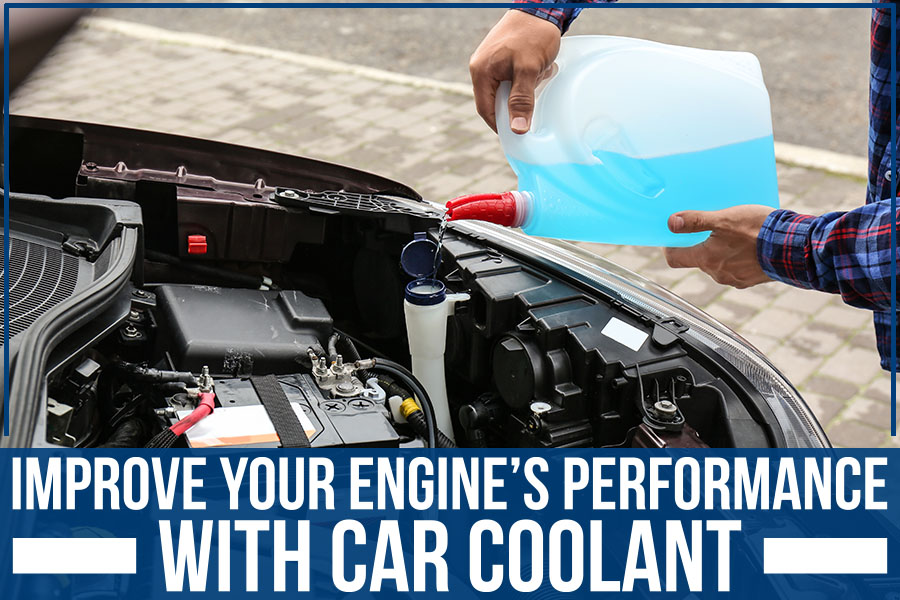
Credit: www.mikepattonhonda.com
Conclusion
Enhancing your engine’s performance taps into its fullest potential and maximizes vehicle longevity. Remember to regularly maintain your vehicle, upgrade components wisely, and consult with professionals for tailored advice. Elevate your ride’s capabilities and enjoy a smoother, more powerful driving experience.
Commit to these steps and watch your engine thrive.

